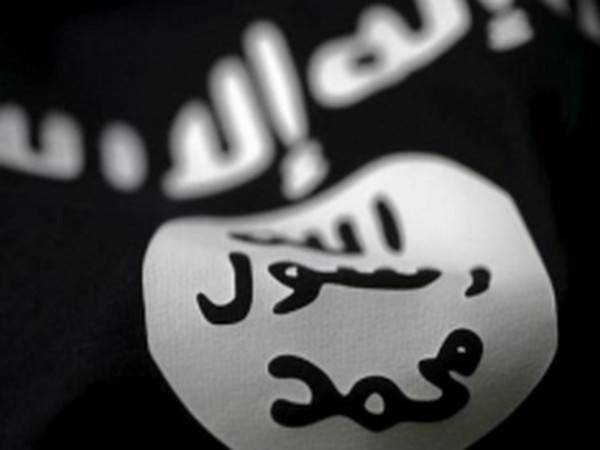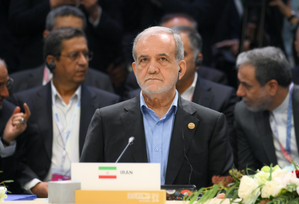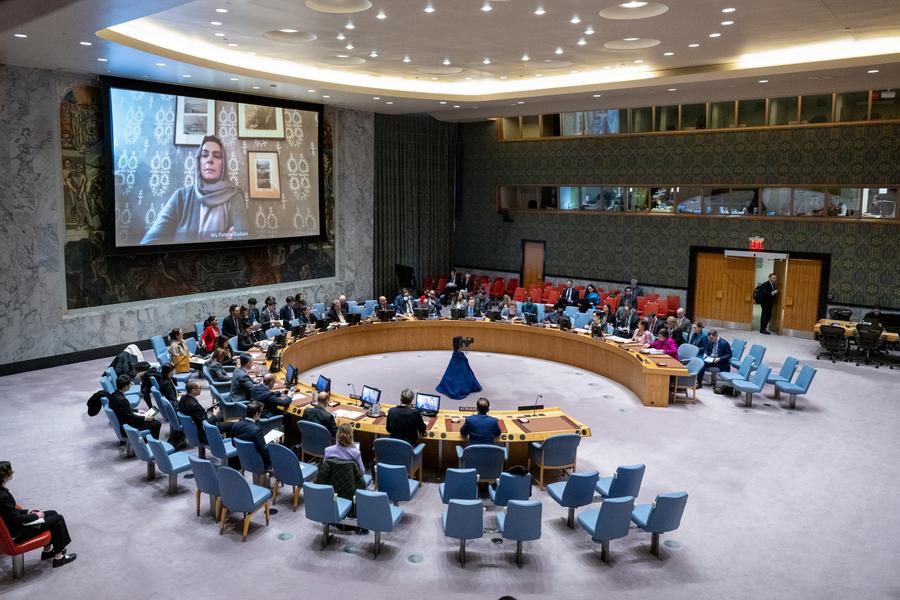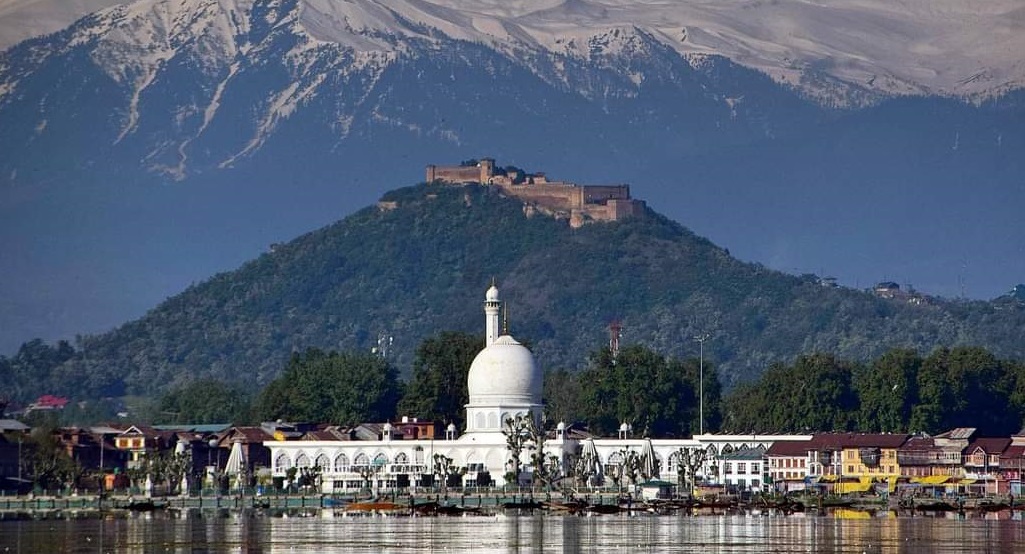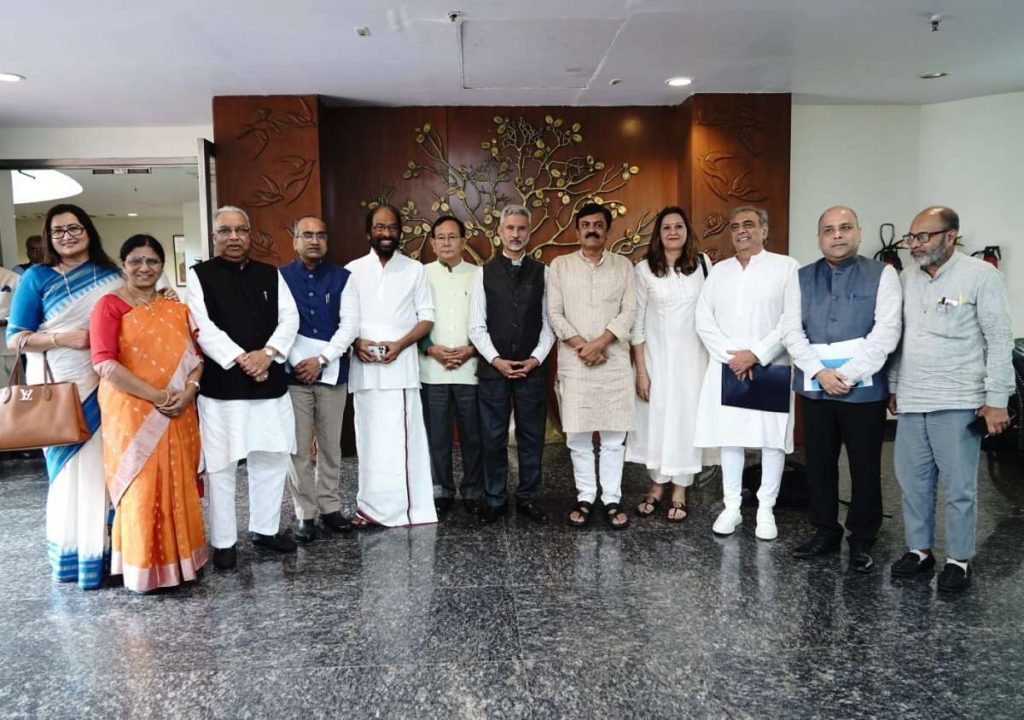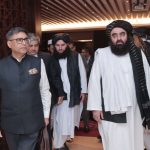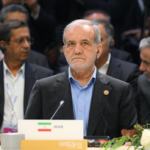According to officail statements, the emergence of ISKP in Afghanistan is impacting regional geopolitics, with global implications…writes Anant Mishra
The recent statement issued by the Iranian Foreign Minister Hossein Amir-Abdollahian expressed deep concerns regarding the activities of the Islamic State-Khorasan Province (ISKP) in the region, further stating that the group had attracted recruitment from senior leadership and battle-hardened fighters from the erstwhile Islamic State in Iraq and the Levant (ISIL) to Afghanistan recently.
The Iranian FMs statement reinforces the UN Security Council report which highlighted ISKP’s escalated activities in the region, but also spotlighted Tehran’s interest in countering the ISIL, as conveyed to this author.
Taking note of Iranian FMs recent statement in conjunction with the Russian foreign minister’s previous remarks, the emergence of ISKP in Afghanistan is impacting regional geopolitics, with global implications.
As expected in the game of intelligence, some of the agencies are apparently involved in covertly supporting ISKP to achieve their political objectives , while some others are strengthening regional ties to counter them collectively. External intervention in turn has opened up Afghan soil for a round of proxy wars.
As the regional security scenario seems to deteriorate and Taliban appears to face a tough challenge against a formidable Islamist group, the timing of Amir-Abdollahian’s remarks needs further comprehension especially in the context of ISKP targeting religious minorities. The Iranian FMs remark not only reflects concerns over violence against Shia minorities in Afghanistan, but also the spillover impact on along the Afghan-Iranian borders, including the flow of refugees in case of a civil war.
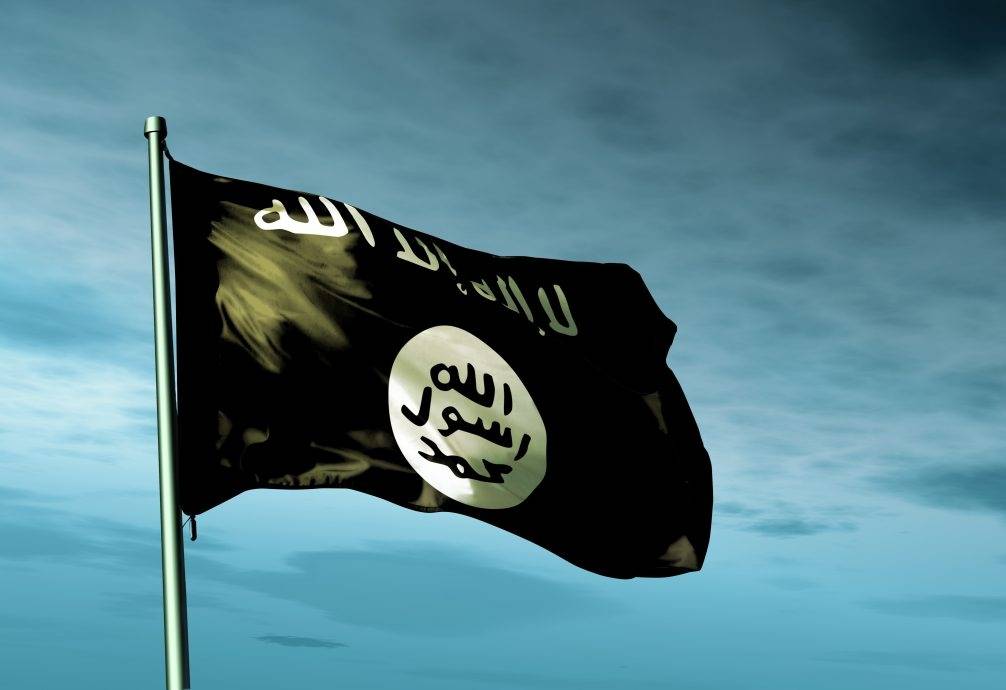
Conflicting ideologues: Iran & Al-Qaeda
Not long ago, the U.S. Secretary of State Mike Pompeo, called out Iran as the new operating hub of Al Qaeda.
Iran, as expected, denied this accusation. But Pompeo’s assessment also did not receive support from the intelligence community over his statement. It is not possible for this author to holistically analyse or comment on Tehran’s relationship with al-Qaeda, but to this author, it is conceivable that Iran has been collaborating with Al Qaeda to spread terrorism.
To begin with, groups such Al Qaeda (Sunni militants) are ideologically at war with Shi’a Islam. This further means an implicit disagreement over the way of life of practitioner of Shi’a Islam and Sunni Wahhabi/Salafi organizations. This was evident from a remark made by the Supreme Leader Ayatollah Khamenei, during an address in 2013, where he blamed Western nations and Sunni Gulf states for supporting such Islamists factions against Iran and Shi’ism.
That said, experts argue that Tehran despite being ideologically at war with such groups, follows a realist foreign policy based on regional influence. To support its regional ambitions, experts argue, Tehran continues to host some al-Qaeda affiliate members and their families since the fall of Kabul in 2001.
Countering ISIL
From the Iranian FM’s statements, it appears that one of the key factors in Tehran’s engagement with the Taliban is the growing threat of ISKP. Largely due to the Shia population, followed by shared border of 921-kms, for Tehran, the presence of ISKP on its eastern borders is a grave concern. It appears that Iranian MFA under the direction of the political class and key members of the Islamic Revolutionary Guard Corps (IRGC) have analysed the prospects of working with the Taliban to counter the security threats posed by the ISKP to the Islamic Republic.
ISKP has been a threat since its existence in 2015, when the group first emerged in Afghanistan. Concerned on the possibility of being flanked by the ISKP, at a time when Tehran was actively engaging ISIL elements in Iraq & Syria, Tehran held two consecutive talks with the then Taliban leader Mullah Mansour in 2016. At the outset, Tehran wanted to enquire on the possibility of an ISKP-Taliban alliance. According to an expert, during the meeting, members of the IRGC categorically mentioned ISKP as a U.S. sponsored proxy working to achieve Washington’s objectives in Afghanistan.
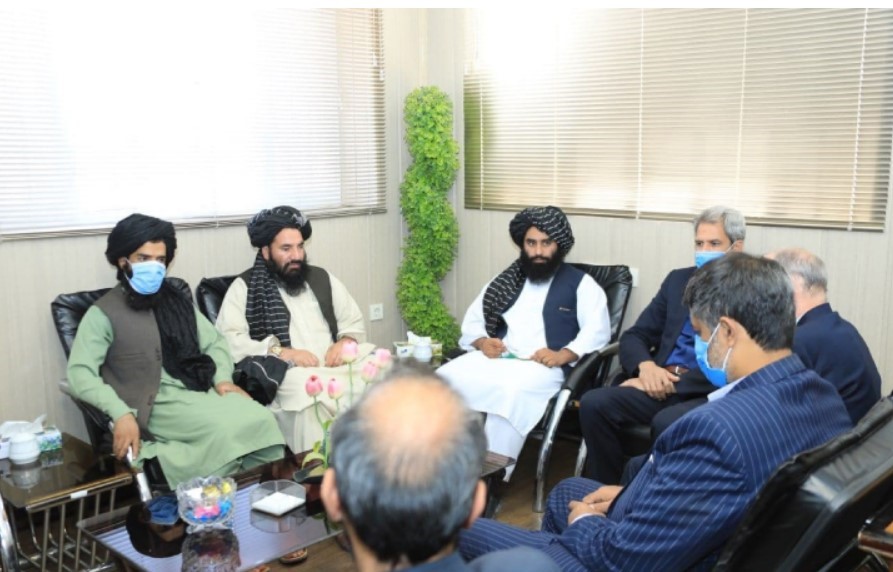
To prove Tehran’s commitment with Taliban, religious leaders and state-run conservative media outlets continue to gather local support based on two key principles: Continue to build new narratives that distinguishes Taliban from the ISKP; Re-interpret some of the actions undertaken by Taliban against the Shia minorities when it first captured power in 1996.
To understand Tehran’s perspectives and commitment based on the principles, the author interacted with two experts from the University of Tehran and Isfahan, to gauge their assessment. During the discussions, experts argued on the adaptability of Taliban to engage in multiple dialogues with the West highlighting their commitment to control Afghanistan’s territories unlike Islamic State which wishes to control Islamic world.
On the issue of Taliban persecuting Shia minorities, both the scholars argued and reinterpreted Taliban actions dating back to 1990s: the Taliban attacks on Shia communities, the assassination of Abdul-Ali Mazari. On the attacks in Bamiyan, they argued, were aimed to capture lost territories and any military operation against the Shia Afghans were largely due to their limited understanding of Taliban’s true objectives, resulting in violence only when they resisted, not because Taliban considered Shias as Kafirs.
To fully comprehend the nature of Tehran’s commitment to Taliban, the author interacted with a conservative religious scholar, who referred Taliban as a local political movement with limited yet positive regional outcomes — making a stark distinction with the ISKP. This justified Tehran’s efforts to work with them in eliminating regional turmoil and reinstating stability within the Afghan society.
The scholar argued that, during the Taliban’s run for Kabul, there were no atrocities committed like those by ISKP or ISIL in Iraq and Syria. The Taliban further announced not to harm the Shia community, showcasing pious Islamic behaviour. According to him, Tehran’s strategic engagement with the Taliban reflects realist polity, with an intent to securitise the eastern border. On seeking IRGC’s position on Taliban, he mentioned his conversation with a senior commander who said Tehran would support the people of Afghanistan if Taliban engages in a confrontation with the ISKP.
It is important to understand that, when Tehran made a remark questioning the ability of the Ashraf Ghani’s government to counter the ISKP militants, it steadily expanded its engagement with the Taliban. Taking note of security concerns rising in its eastern border, Tehran may put more weight behind Taliban to strengthen the latter’s fight against the group. It is too soon to predict the effectiveness of this decision, but for Tehran, securing eastern borders by supporting the new rulers in Kabul may prove more valuable than countering ISIL, winning the hearts and minds of Iran’s Sunni population.
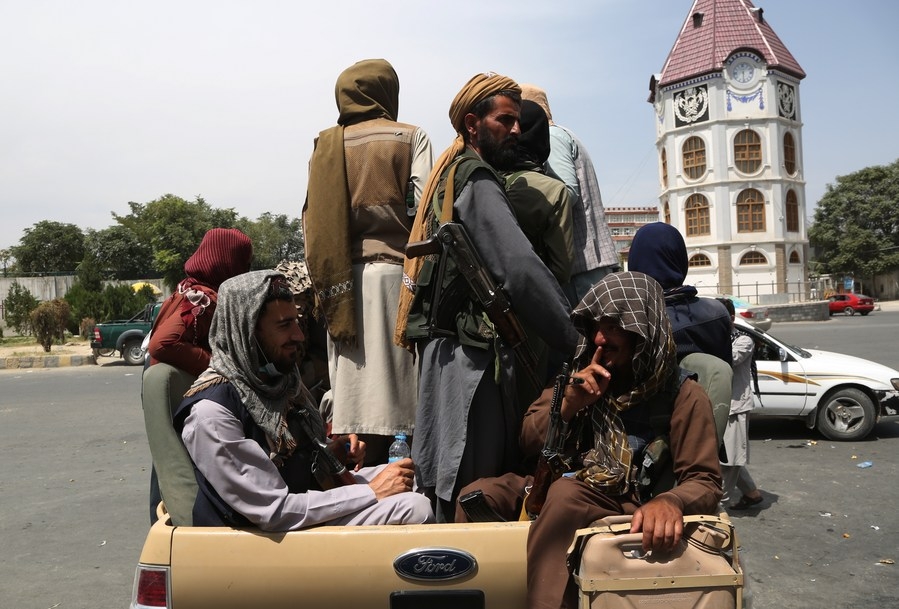
Catering regional ambitions
It is without a doubt, for Tehran, securing eastern borders is the priority, especially after the Taliban takeover of Kabul in 2021.
One may argue, Tehran has been eyeing for Taliban to return. This is evident from countless interactions since the early 2015, when it consciously made efforts to strengthen its relationship with the group, convinced the erstwhile republic government was no longer a match against the ISKP. Cloaking their engagement in the pretext to facilitate an intra-Afghan dialogue — a platform to host negotiations between Taliban leadership and erstwhile republic government — Tehran employed any means necessary to exercise influence within the group. Although it failed to exercise enough influence against competing powers, Tehran had some success, but its influence remains to be tested against traditional Taliban supporters such as Saudi Arabia, Qatar, Turkey, Pakistan, or even UAE.
Nevertheless, Tehran has credible friends in Taliban, though it is still unclear about Taliban’s internal cohesion, organizational architecture, the shura distribution, provincial responsibilities, and Rahbari Shura’s inner workings. For Tehran, the takeover of Kabul, perhaps, stands as one of the most recent challenges to its national security and religious identity. For Tehran, the regime it expected to return has refused to consider inclusivity within its organizational structure or governance. Some in Tehran have expressed concerns against Taliban’s treatment of ethnic and religious minorities, their constant subjugation and disregard to regional neighbours’ religious sensitivity. This has created vacuum for ISKP which according to one report, have carried out more than dozen attacks targeting the Hazaras, since the Taliban came to power in August 2021. Moreover the targeted attack against the Seh Dokan Mosque in Mazar-e Sharif, one of the most prominent Shi’a mosques, left more than 30 dead and over hundred injured, is another such example.
The case of refugees
In the context of refugees, Iran’s position towards the new rulers in Kabul stands conflicted, taking decisions without enraging the new rulers, and at the same time, preventing Afghans from entering their territories. That said, Tehran deported thousands of Afghan soldiers who rushed to the borders after the fall. However, the flood of refugees was beyond the control of heightened border security, with different identities historically tied/linked, with Iran, arriving on the borders from all over Afghanistan. This forced Tehran to hire Pashtun interpreters for official records of intake.
Still, Tehran continues to face serious challenges from unregistered Afghans living in the country. The flow of unregistered migrants’ concerns Tehran to the extent that it fears movement of Takfiri and Salafi sympathisers in its territories, cloaked under the identify of migrant Afghans, with an intent to target Shia clerics.
The border clashes
Iran’s concern during its engagement with the new rulers in Kabul lies primarily in the context of border security. The clashes between Iranian border guards along the Afghanistan–Iran border (between Nimroz and the Iranian Sistan and Baluchestan), adds to the recent list of skirmishes on the border.
Some experts argue, that Tehran’s patience may be interpreted as weakness in Kabul. It is yet to see whether regional forces influencing Taliban may use this opportunity to settle scores against Tehran or at best instil anti-Shia sentiments, long enough for Tehran to retaliate.
A joint initiative against ISKP?
Putting Iranian FM’s remarks aside, for contextual reference, Taliban approaches to tackle the threat of ISKP resonates some sense of commitment, at least in remarks. The Taliban’s call for intelligence cooperation with Tehran reflects some sense of a bilateral engagement Kabul intends to propose, in the interest of national and regional security.
In the on-going battle between the Taliban and the ISKP, we may witness involvement of a key regional player which will convert Afghanistan into a geopolitical playground for proxies. This will prolong until the ISKP continues to effectively challenge and subsequently undermine the Taliban rule. To this end, Kabul could seek some strategic support from Tehran in the context of intelligence collection, stepping beyond traditional diplomatic relations, further complicating regional stability and security.
For Tehran, securing borders with Afghanistan is the greatest challenge. The rise of ISKP has provided limited options/no choice but to strengthen its relationship with Taliban and stabilise in any way possible, even if it means reinterpreting few pages of history. That said, Tehran will not shy away from seeking new alliances. This would mean, strategically using Hezbollah to break away alliances made by the ISKP, a tactic that has never produced positive outcomes. This tactical decision using Hezbollah against the al-Qaeda in the Islamic Maghreb (AQIM) strengthened foundations for the Islamic State, which dangerously evolved with time.
Tehran has a history of defeating Islamist Sunni groups through military action, without considering the notion to win hearts and minds of its Sunni population. But if Tehran emboldens the relationship with Taliban, it must do away with discriminatory practices and harsh treatment against religious minorities. These practices have hurt its relationship with the new leaders before and bolstered Sunni factions such as ISKP in their recruitment propagandas. Will this entail fundamental religious freedom to marginalised Sunni population in Iran? This largely rests on how Tehran reacts to Sunni extremism and extends support to Taliban in their fight against ISKP.
(Anant Mishra specialises on Afghanistan, where he has served three combat deployments. He was adviser to key military and civilian leaders of the Ashraf Ghani government. Views expressed are personal and exclusive to India Narrative)

